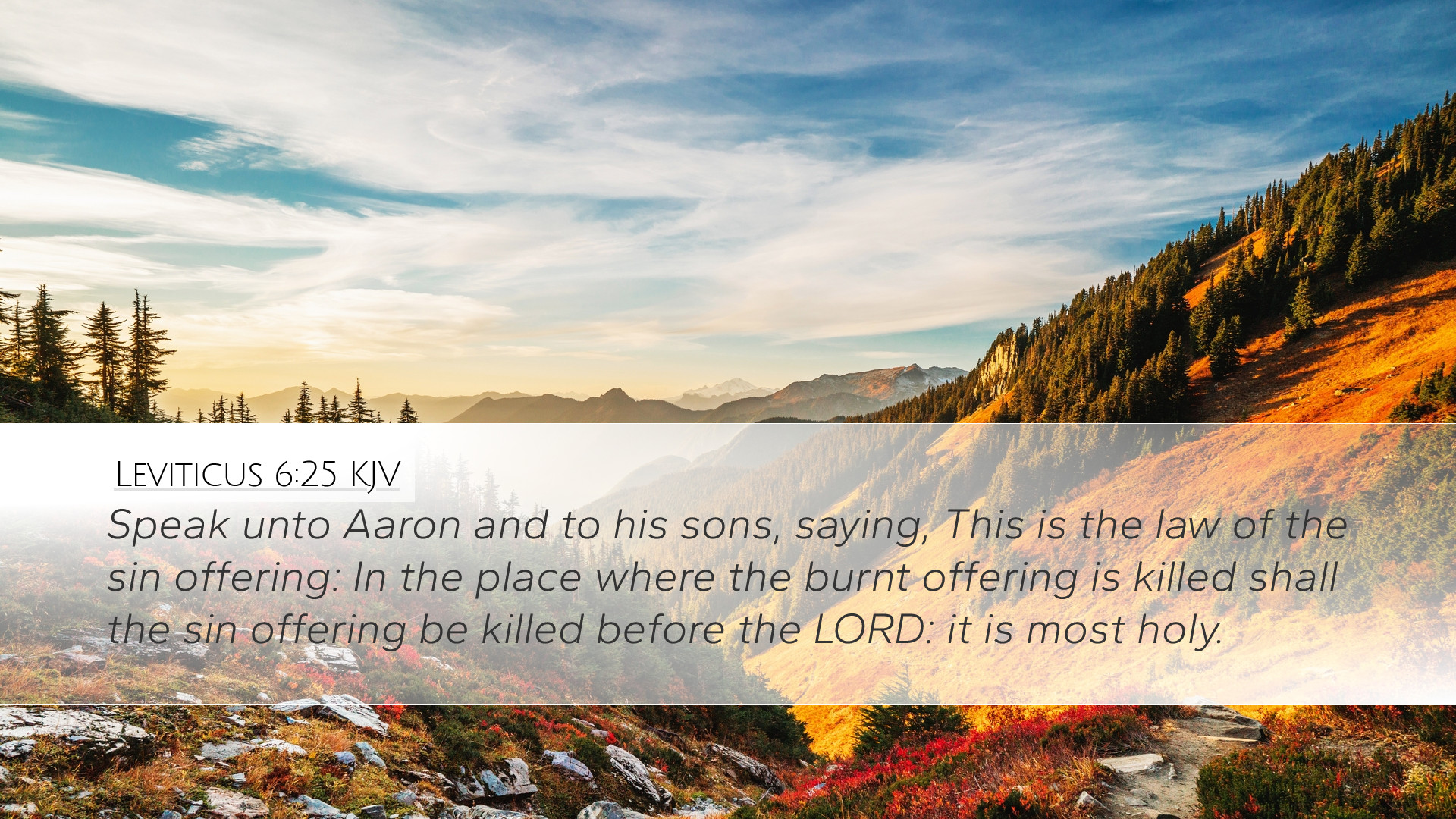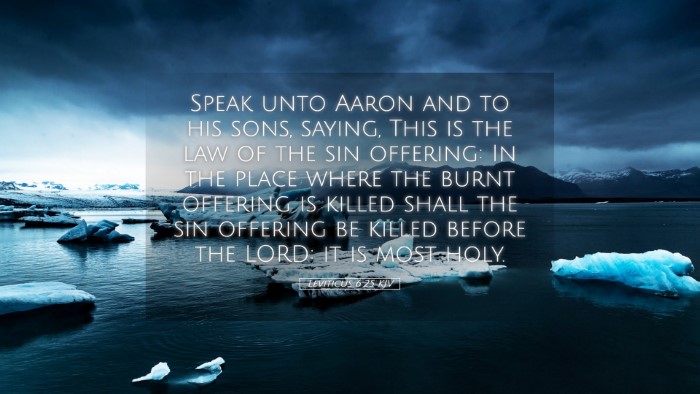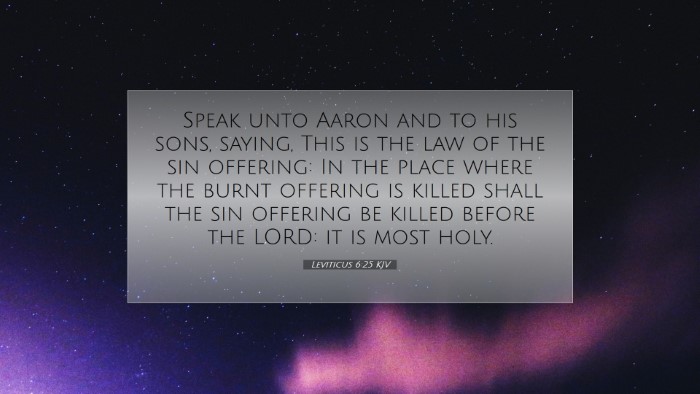Commentary on Leviticus 6:25
Verse: "Speak to Aaron and his sons, saying, 'This is the law of the sin offering: In the place where the burnt offering is killed shall the sin offering be killed before the Lord; it is most holy.'" (Leviticus 6:25, ESV)
Introduction
The book of Leviticus primarily outlines the laws and regulations given to the Israelites. Chapter 6 details the laws regarding various offerings, particularly focusing on the sin offering. In this verse, we see God instructing Aaron and his sons on the proper procedures for conducting sacrifices, emphasizing the holiness and significance of these offerings.
Contextual Analysis
According to Matthew Henry, the sin offering represents the recognition of sin and the necessary restitution required to restore the relationship between God and His people. The specific instruction for the location of the sin offering, that it be killed in the same place as the burnt offering, underscores the profound connection between these acts of worship, symbolizing atonement and consecration.
Albert Barnes points out that the sin offering, being described as "most holy," indicates that it is not merely a ritual but a profound spiritual act that anticipates the ultimate sacrifice of Christ, foreshadowing his role as the Lamb who takes away the sin of the world (John 1:29).
Theological Implications
-
Holiness of Sacrifice: Emphasizing the holiness of the offerings reflects Adam Clarke's view that such rituals are not just procedural but carry deep significance in acknowledging divine justice and mercy.
-
Atonement: The sin offering highlights the concept of atonement, where God's holiness demands a sacrifice for sin, something which both Clarke and Henry agree is essential for understanding the sacrificial system.
-
Role of the Priesthood: Aaron and his sons are directly addressed in this law, underlining the necessity of a mediator between God and man. This foreshadows the ultimate High Priest, Jesus Christ, as discussed by Barnes in relation to Hebrews 4:14-16.
Practical Applications
For pastors, this passage serves as a reminder of the significance of confession and repentance in Christian ministry, paralleling the necessity of sin offerings with the need for congregational accountability and spiritual health.
Theological students can glean from this verse the importance of understanding the Old Testament sacrificial system as a precursor to New Testament fulfillment in Christ. This awareness enriches one's grasp of the entirety of Scripture.
Additionally, Bible scholars can study this allocation for its cultural and historical context, using it to illustrate the broader narrative of redemption throughout the biblical text.
Conclusion
Leviticus 6:25 provides profound insights into the sacrificial system established by God, marking it as integral to worship and relationship with Him. By combining the insights from Matthew Henry, Albert Barnes, and Adam Clarke, a rich tapestry emerges that highlights not only the historical significance of the sin offering but also its enduring theological implications for believers today.


